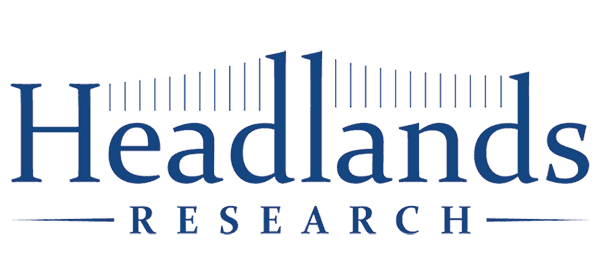Mental health disorders continue to be a major public health concern. Approximately 20% of adults in the United States and Canada are diagnosed with a mental health disorder, and treatment resistance affects 20% to 60% of all individuals with mental health disorders.
Following on from our previous discussions about mental health research, in which we talked about how equitable, effective treatments need continued research and representativeness in research improves the generalizability of treatment outcomes, we dive a little deeper into the topic in this post.
Here, we review three mental health conditions for which clinical trials are being conducted at Headlands Research sites and treatment resistance is common: depression, obsessive-compulsive disorder (OCD), and post-traumatic stress disorder (PTSD).
Depression
Depression affects a significant proportion of individuals ages 12 years and older: 9.2% in the United States and 6.7% in Canada. A combination of therapy and medications is typically used to manage depression, although the heterogeneous nature of depression and its underlying factors often requires personalization of the treatment regimen. However, even in the presence of what appears to be optimized therapy based on the evidence, many individuals with major depressive disorder experience treatment resistance.
The US Food and Drug Administration (FDA) and European Medicines Agency (EMA) define treatment-resistant depression as the failure to respond to two or more antidepressant regimens despite adequate dose and duration and treatment adherence. However, the definition differs study by study and for different organizations.
Although varying definitions of treatment-resistant depression make it challenging to estimate its prevalence, studies have placed it in the range of 6% to 55% of individuals with major depressive disorder. Regardless of the exact prevalence, individuals who do not respond to treatments experience more depression-related burden, including higher health care utilization, more intense treatments, greater impairment in psychosocial function, higher workplace disability and absenteeism, and poorer quality of life.
People with treatment-resistant depression reportedly have lower socioeconomic status (SES), were diagnosed with and treated for depression at a younger age, and comorbid psychiatric disorders, including anxiety disorders, OCD, and suicidal behaviors. However, clinical trials of investigational drugs for major depressive disorder often exclude people with these conditions as well as treatment-resistant depression, making it even more challenging to find effective treatments for this segment of people with depression.
Obsessive-compulsive disorder (OCD)
OCD, another mental health disorder that can be significantly disabling, affects between 1% and 3% of the global population. The only available approved treatment options include serotonin reuptake inhibitors (SRIs), with first-line pharmacotherapy involving selective SRIs (SSRIs), and psychotherapeutic approaches, typically cognitive behavioral therapy (CBT). The FDA has not approved a drug for OCD for more than 20 years, and approximately 50% of people with OCD do not respond completely to SSRIs.
Similar to depression, consensus around the definition of treatment resistance varies, but it is generally considered to be when numerous treatment trials have failed. It is challenging to address resistance by increasing SSRI doses because people with OCD generally require treatment with higher doses already to control their symptoms when compared with anxiety and depressive disorders.
Data collected from multiple trials have shown that poorer response to SRI pharmacotherapy tends to occur for those with more severe symptoms and an earlier age of OCD onset. OCD is also highly comorbid with other mental health disorders, which could limit participation in clinical trials of new drugs due to restrictive inclusion criteria that aim to minimize confounding effects by limiting recruitment to participants with a single mental health diagnosis.
Post-traumatic stress disorder (PTSD)
The prevalence of PTSD in the United States is approximately 7%. In its severe form, which affects about one-third of people with PTSD, the condition can have a significant impact on function at home, work, and socially. Similar to OCD, first-line treatment includes SSRIs or serotonin-norepinephrine reuptake inhibitors (SNRIs) and psychotherapy, primarily CBT. However, 35% to 47% will be resistant to treatment, and treatment response can vary by the type of trauma. For example, military veterans often do not respond adequately to treatments that are generally effective for others with PTSD.
The risk of developing PTSD is disproportionately higher for certain population subgroups due to their greater exposure to trauma: gender-diverse and transgender individuals, ethnic/racial minorities, first responders, military personnel, and military veterans. However, these individuals are historically under-represented in clinical trials of new treatments. In addition, the presence of other mental health disorders, such as depression, anxiety, and substance abuse disorder complicate their treatment and limit their involvement in most research of new therapies.
Continued research is needed to find effective treatments
All three conditions lack consensus on the definition of treatment resistance, which limits adequate evaluations of the effects of treatment resistance on clinical and quality of life outcomes. However, the available data suggest that poor response to treatment is an ongoing issue that requires further investigation. One of the challenges with quantifying resistance for all mental health disorders is the concept of “pseudo-resistance.” Misdiagnosis and poor adherence to treatment contribute to pseudo-resistance, and both occur at high rates in mental health disorders. Inconvenient treatment regimens and the presence of significant side effects with pharmacotherapy can be among the reasons for poor treatment adherence. When combined with limited treatment options, these factors highlight the ongoing need for effective treatments with minimal or tolerable side effects.
At Headlands Research, we’re proud to contribute to the evaluation of investigational treatments for mental health disorders. Our sites have specialists in psychiatry/psychology and dedicated psychometricians to lead and execute clinical trials for mental health disorders. Contact us to learn more about our sites and how they can support your future studies.

